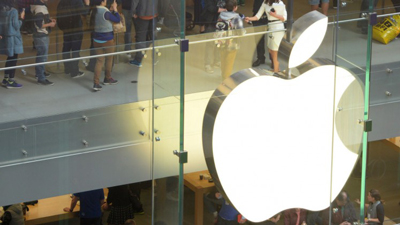Apple Goes to the Supreme Court

The Justices should hear the e-book antitrust case.
The Supreme Court may consider as early as Friday whether to take an appeal of one of the great antitrust abuses of recent decades, and the economic import is far larger than the electronic-books market that Apple is accused of rigging. The Justices ought to take the case to show that the law permits the innovation and new business models that power the modern economy.
The Justice Department claims that when Apple created the tablet computer with the iPad in 2010, it also conspired with the major publishing houses to increase e-books prices. The company hoped to inject competition into a retail space dominated by Amazon, which then sold nine of 10 e-books.
Amazon was buying e-books from the publishers wholesale and selling them below the wholesale price, losing a couple bucks on each transaction to attract consumers to its Kindle device and e-commerce business. This tactic displeased the publishers (including HarperCollins, a unit of News Corp. like the Journal). Apple offered the alternative of “agency” pricing, which delegates retail price-making to the producers of intellectual property within caps.
The agency model is legal and common in other industries. And neither the district court nor a fractured panel of the Second Circuit Court of Appeals found that Apple’s contractual terms were illegitimate. There is no suggestion that Apple sought to raise e-book prices, the alleged goal of the bookseller plot.
The company was instead keelhauled with a treacherous new theory of antitrust liability. Under a threat of financial ruin, the publishers copped to a settlement to so-called “horizontal” collusion—meaning, to translate the antitrust jargon, improper relationships among competitors in the same business. “Vertical” transactions occur with companies like Apple that operate at different industrial levels.
Justice contends that the horizontal scheme was somehow “facilitated” or “orchestrated” by vertical conduct that was perfectly legal on its own and in Apple’s independent interests. In other words, if there wasn’t a new digital bookstore and a new platform to consume content, there never would have been a conspiracy. Apparently the tech giant is guilty of price fixing, even though it didn’t attempt to fix prices, for having the nerve to enter a market commanded by a monopolist.
Even worse, the lower courts ruled such conduct “per se” illegal—a narrow class of violations that used to be reserved for actions that are so inherently nefarious they are automatically illegal. Most antitrust is supposed to be governed by a “rule of reason” standard, in which judges examine real-world evidence to see if competition has increased and consumers are better off.
In the case of e-books, average retail prices for the trade market that includes all titles fell to $7.34 from $7.97 in the two years after Apple introduced agency pricing. Over the same period average prices for best-sellers among the defendant publishers did climb modestly—but they’ve since plunged over the long run as competition has surged. Apple’s entry led to a profusion of more advanced tablet devices and an ecosystem that features many more titles and more digital-only and independent publishers.
The Second Circuit’s ruling that vertical arrangements can be per se illegal conflicts with a more rational 2008 decision out of the Third Circuit and a 2007 Supreme Court precedent. More to the point, allowing the decision to stand is a menace to the digital economy.
The U.S. digital innovation wave isn’t merely about technology but new forms of economic organization and distribution. Vertical arrangements include software and patent licensing or subscriptions to streaming video and music services. The Open Table app maintains vertical relationships with restaurants to make reservations. Are they “orchestrating” a dining conspiracy too?
The federal vendetta against the iPad and new, dynamic business models would be laughable were it not so dangerous. Justice should have stood down years ago, but Apple v. United States is the last chance to correct this antitrust malpractice.
Source: WSJ





























